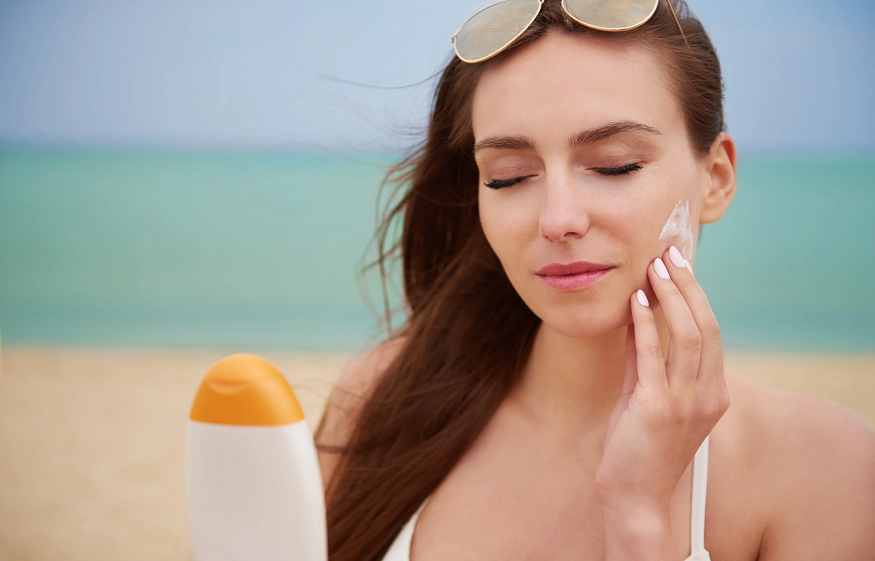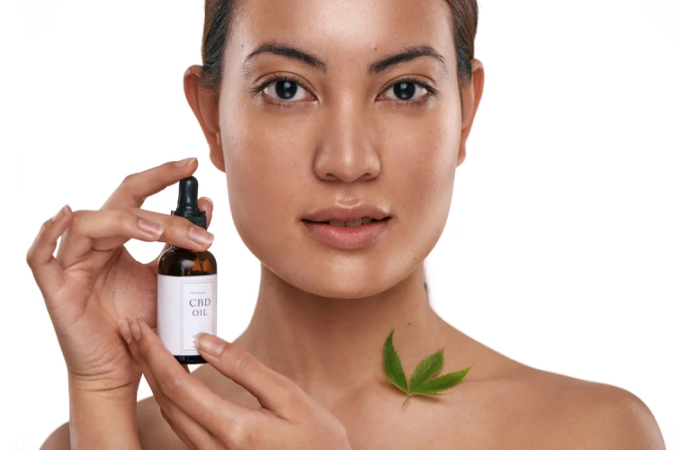
Which Sunscreen Cream Is Best for Oily Skin?
People with oily skin experience special obstacles in protecting themselves from the sun. People with oily skin encounter extensive difficulty in locating appropriate sunscreens which neither enhance oiliness nor create pore blockages or acne outbreaks. Applying additional products to oily skin that tends to produce oil can be scary to people. Protection from sun rays remains must-due because UV dangers elevate skin cancer risk and trigger pigmented spots while accelerating premature aging of your skin.
To choose the suitable best sunscreen cream for oily skin consumers must understand the requirements of this skin subtype. The natural oil production of oily skin results in a face that looks overly shiny and greasy. Oily skin quantities can create skin pores blockages which lead to acne breakouts while simultaneously producing a greasy sensation during the entire day from using sunscreens that are thick and occlusive. People face difficulties in discovering adequate protective formulations while avoiding additional discomfort from these issues.
Essential Features of the Best Sunscreen for Oily Skin
The best sunscreen for oily skin should contain multiple key characteristics to deal with these specific problems. The top priority should be selecting sunscreens that are both non-comedogenic and free from oil content. People with problems with acne breakouts should seek out these products since they were explicitly formulated to prevent pore blockages. Product labeling as an “oil-free” product does not indicate moisture absence since the formulation avoids all surplus oil ingredients.
Top-quality sunscreens created for oily skin should incorporate materials that remain light on the skin and quickly penetrate the surface. Heavy creams create a sticky oil layer on the skin because they stay at the surface and blend with natural skin oils. Such formulas absorb into the skin rapidly while leaving behind minimum trace amounts.
Recognizing Mineral vs. Chemical Sunscreen Types
People with oily skin want to apprehend the distinction between physical mineral and chemical sunscreens to choose the maximum suitable sunscreen cream for their wishes. Zinc oxide and titanium dioxide, active chemical substances blanketed in mineral sunscreens, live on the pores and skin’s surface and deflect and disperse UV rays. These formulations had been once infamous for feeling heavy and growing a white cast, however, greater recent iterations have an awful lot improved, with many now presenting obvious, lightweight safety.
In evaluation, chemical sunscreens characteristic with the aid of soaking up UV photons and turning them into warmness that is subsequently expelled from the skin. These are a famous alternative for oily pores and skin kinds due to the fact they generally appear lighter and blend extra easily. They might, but, encompass substances that might aggravate sensitive pores and skin or trigger responses in positive humans.
Mineral solutions with more recent formulation technology may be better for people with sensitive but oily skin. Without the bulk or white cast of conventional mineral sunscreens, these offer the gentleness of physical protection. Since minerals are less likely to cause irritation or outbreaks, many physicians advise them for people with acne-prone skin.
The Effects of Broad-Spectrum Protection and SPF Levels
All skin types need protection that includes broad-spectrum coverage together with adequate SPF values. A minimum SPF 30 should be present in the best sunscreen for oily face yet SPF 50 is recommended daily by several dermatologist experts mainly for those who remain outdoors long hours. Several positive SPF products exist in the market which remain lightweight despite their high protection factor values.
The protection of considerable UVB and UVA rays in broad-spectrum sunscreen maintains equivalent importance because it prevents aging and sunburn. Comprehensive protection is necessary for people who have oil-prone skin since sunlight exposure intensifies both acne-related post-inflammatory dark spots and hyperpigmentation.
Novel Formulations: Exceeding Simple Sun Protection
Today’s product offering includes multiple skincare advantages with a combination of sun protection properties. Specific sunscreens combine niacinamide as an active ingredient to provide fortification to the skin barrier while simultaneously regulating skin oil output. Some products possess salicylic acid that functions as an effective acne preventative when protected from sunlight.
Reputable sunscreens include vitamin E vitamin C and green tea extract as well as other antioxidants in their formulations. The included ingredients function to protect the skin by eliminating the free radicals that UV rays generate. The protective benefits of antioxidant-enriched sunscreen formulas benefit oily skin types who dislike heavy or greasy.optical sensations on their face.
The Value of Consistent Reapplication
Reapplication of sunscreen throughout the day is a standard problem for humans with oily pores and skin. For those who put on make-up or are involved in putting greater product on their already oily skin, the conventional advice to reapply each hour can also appear unrealistic. Reapplication remains crucial for enduring safety, even though, in particular after prolonged publicity to the outside.
To tackle this difficulty, creative solutions have surfaced. An easy approach to reapply protection without adding moisture or removing makeup is with powder sunscreens with SPF. In a similar vein, SPF-containing setting sprays can control shine and renew protection. These substitutes make it simpler to stay protected all day long without aggravating the symptoms of greasy skin.
Look for Natural and Skin-Friendly Ingredients
The ingredient list becomes especially crucial when looking for the best sunscreen cream for oily skin. For oily complexions, certain natural substances have shown particular benefits. Although zinc oxide is mostly used as a physical sunblock, it also has modest oil-absorbing qualities and can help calm skin that is inflamed or prone to acne.
Tea tree oil is beneficial for people who frequently have acne since it has antibacterial properties in small amounts without irritating the skin. Likewise, witch hazel’s inherent astringent qualities can aid in regulating oil production all day long. Green tea extract delivers gentle oil-controlling properties and antioxidant protection, while aloe vera soothes without making you feel heavy.
Sunscreen Technology’s Future for Oily Skin
Rapid improvements in sunscreen generation are being made to meet the needs of human beings with oily skin. By enclosing active chemicals in tiny tablets that release steadily, the micro-encapsulation era offers longer-lasting protection without feeling bulky. In a similar vein, developments in polymer science have produced formulations that cover the skin’s surface with breathable, invisible shields that protect without blocking pores.
Innovation is also being fueled by environmental concerns, as formulations that are reef-safe and biodegradable gain importance. Many of these environmentally friendly solutions offer good protection without sacrificing texture or finish because of plant-based ingredients that are kind to the skin and the environment.
Conclusion:
Because individual preferences and particular skin conditions differ greatly, choosing the best sunscreen for an oily face is ultimately still a personal adventure. Even within the same basic skin type category, what suits one individual well may not work for another. Which formulation will work best depends on several factors, including lifestyle, climate, acne patterns, and sensitivity.
To obtain the ideal fit, many dermatologists advise trying out various choices. You can select the ideal sunscreen to keep your oily skin safe, pleasant, and healthy all year long by knowing your skin’s shifting demands and the qualities of effective formulas.





